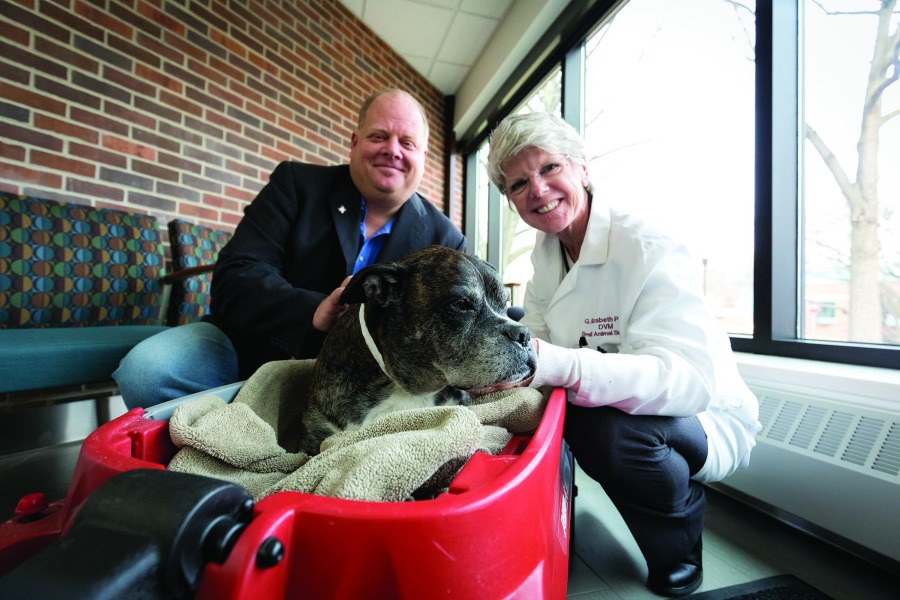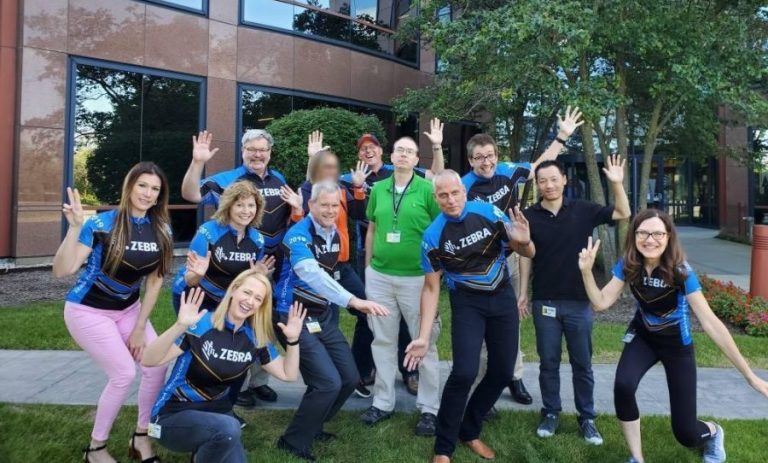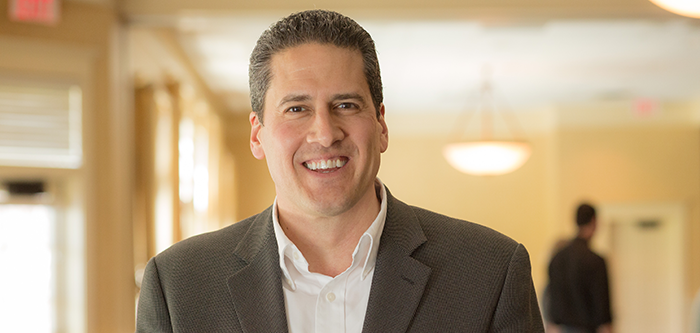Photo by Brady Willette
Because of donors like you, Michael Olin, PhD, and assistant professor in the Department of Pediatrics at the University of Minnesota can say, “We have proved our hypothesis.”
Dr. Olin was awarded a grant in 2014, thanks to donors, to test his hypothesis that a specific protein called CD200 interferes with a potentially lifesaving brain tumor vaccine. Olin’s goal was to be able to “turn off” the protein, giving the vaccine a chance to attack the brain tumor.
Before Olin’s work with CD200, the University of Minnesota developed a brain tumor vaccine that demonstrated promising results with minimal toxicity for brain cancer patients, but as they tested the vaccine, scientists discovered that brain tumors surround themselves with a shield of sorts that prevents the immune system from attacking the tumor.
Dr. Olin hypothesized that this shield was created in part by CD200, which clusters around blood vessels that surround tumors. CD200 stops the T-cells, the cells that should attack the tumors. T-cells move throughout the body via blood vessels, and when the T-cells meet CD200 surrounding the tumors they are supposed to attack, they are shut down.
So, Dr. Olin found a way to turn off the protein using what he calls a CD200 inhibitor. This inhibitor stops the protein from shutting off the T-cells, letting the T-cells recognize the tumor cells and fight them.
Once he discovered how to turn CD200 off, he shared his findings with the University of Minnesota College of Veterinary Medicine and Elizabeth Pluhar, DVM, PhD. They collaborated to treat companion dogs with high-grade brain tumors using the brain tumor vaccine and Dr. Olin’s new CD200 inhibitors. After treatment, MRIs showed that many of the dogs’ tumors had disappeared. Today, the dogs have remained tumor-free as far as 530 days from treatment.
Because dog and human brain tumors are very similar, researchers are confident that the new CD200 inhibitor/vaccine combination will be just as effective in humans.
In March 2017, Dr. Olin confirmed that the human CD200 inhibitors they’ve developed are working. He is hoping to bring the breakthrough discoveries to a human clinical trial this year or early next year. Dr. Olin has designed five different versions of the humanized CD200 inhibitor and is now researching which will be the best to bring to human trials.
According to new federal data, childhood brain tumors are the leading cause of cancer-related death among kids ages 0–19, surpassing leukemia. This breakthrough research is a remarkable step toward creating better, more effective treatments for young people with brain tumors. A world without cancer starts with research, and we are one step closer to a cure because of your support.




